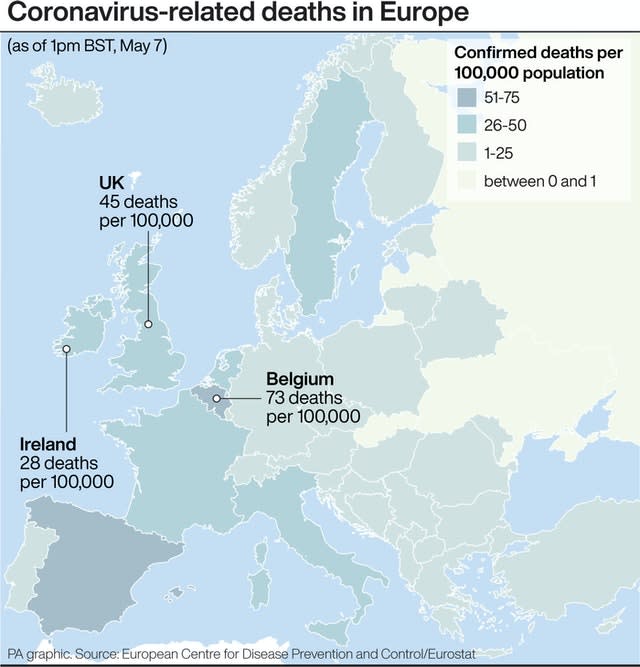People who recover from virus ‘could help reduce community transmission’
People who have recovered from coronavirus could return to the general population to help reduce the rate of transmission, new research suggests.
Scientists say these people would need to be identified through antibody tests, and could help in the development of “shield immunity” within the wider community.
Researchers from Georgia Institute of Technology developed and analysed an epidemiological model for reducing Covid-19 transmission.
Their approach relies on using antibody tests to identify people who have recovered from the virus.

The model assumes recovered people will be virus negative, will have Covid-19 antibodies, and be able to interact safely with both susceptible and infectious people.
Scientists suggest these recovered people could then return to the general population and increase their interactions relative to other individuals.
In the paper published in Nature Medicine, Joshua Weitz and the other authors suggest this could build “shield immunity” within the population by increasing interactions between recovered people and decreasing interactions between people with an unknown status.
The paper states: “The objective of a shield immunity strategy is to help to sustain the interactions necessary for the functioning of essential goods and services while reducing the probability of transmission.
“Our shield immunity approach could substantively reduce the length and reduce the overall burden of the current outbreak, and can work synergistically with social distancing.
“The present model highlights the value of serological testing as part of intervention strategies, in addition to its well-recognised roles in estimating prevalence and in the potential development of plasma-based therapies.”

 Yahoo News
Yahoo News 
